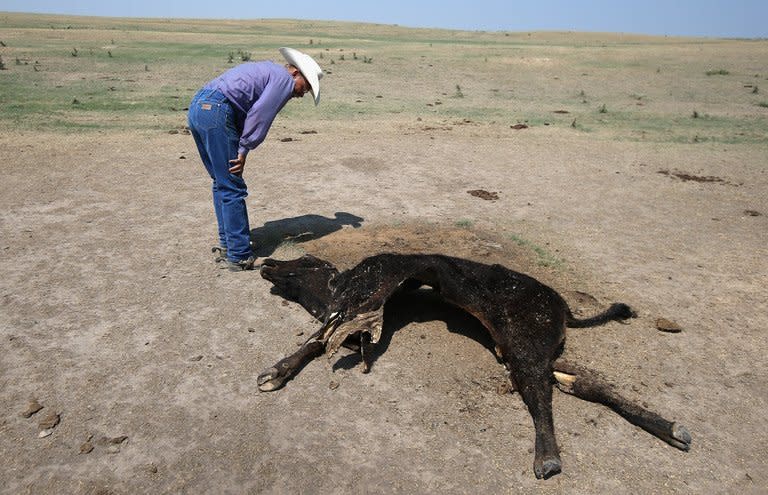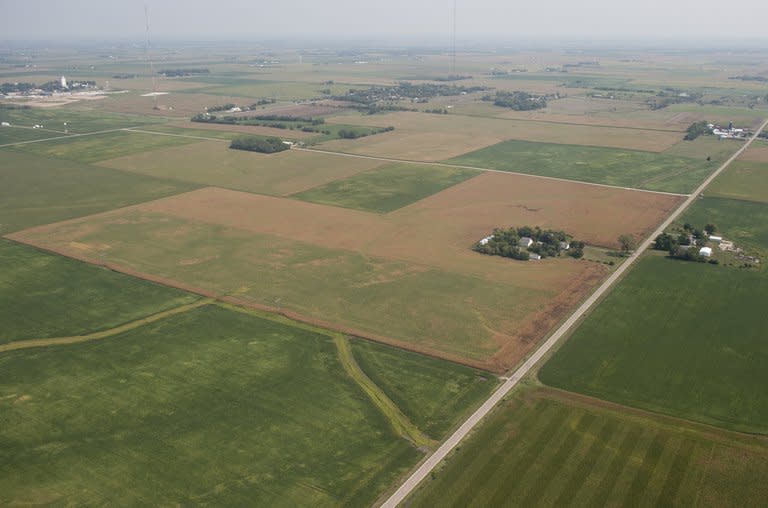US study warns of extreme heat, more severe storms
A government report warned the United States could face more frequent severe weather including heat waves and storms for decades to come as temperatures rise far beyond levels being planned for. The draft Third National Climate Assessment, a scientific study legally mandated to advise US policymakers, made few bones that carbon emissions have been causing climate change -- a source of controversy among some lawmakers. "Evidence for climate change abounds, from the top of the atmosphere to the depths of the oceans," the study said. "The sum total of this evidence tells an unambiguous story: The planet is warming." The study, which was submitted for public and expert review and could be revised, said there was "strong evidence" that human activity had already roughly doubled the probability of extreme heat of the kind seen in Texas and Oklahoma in the summer of 2011. The assessment expected temperatures to keep rising and offered different scenarios for the future -- including temperatures rising between 2.8 and 5.6 degrees Celsius (5 and 10 degrees Fahrenheit) after 2050 if emissions climb further. Such a rise would be far beyond the level anticipated by world leaders in UN-backed climate change negotiations, which have committed to holding warming to no more than two degrees Celsius above pre-industrial levels. The report warned that climate change "threatens human health and well-being in many ways," including through more frequent storms, wildfires, diseases and worse air quality. Rising sea levels have already damaged infrastructure and climate change could increasingly reduce the reliability of water supplies, particularly in the southern half of the United States and Great Plains, the report said. While US agriculture will likely remain resilient in the next 25 years, yields of major crops could start declining by mid-century and warming oceans could threaten fish, the study said. The draft assessment said that some additional climate change was "now unavoidable" but said that the United States still could decide how much to allow. The draft assessment was released three days after the National Oceanic and Atmospheric Administration said that 2012 was easily the warmest year on record in the continental United States and ranked second for extreme weather. Environmental advocates hoped that the release of the draft report would bring fresh momentum to efforts to tackle climate change. "Climate change is taking its toll on people and their economies, and will only become more intense without a strong and rapid response here in the United States and around the globe," Andrew Steer, president of the World Resources Institute, said in a statement. President Barack Obama has hinted he will make a new effort on climate change in the wake of his November 6 re-election and massive storm Sandy, which killed at least 120 people in the US Northeast. Efforts by Obama's Democratic Party to mandate cuts in carbon emissions failed in 2010 in the Senate. Lawmakers of the rival Republican Party said that legislation would be too costly and voiced doubt over climate science. Since then, the Obama administration has ordered higher standards for power plants. US emissions dropped in 2011, largely due to increased use of natural gas instead of coal. World Bank president Jim Yong Kim, who released a report in November that warned of potentially catastrophic 4.0 degree Celsius warming if no action is taken, said that evidence is "overwhelming" on climate change. Speaking Friday at a luncheon honoring Korean Americans, Kim voiced fear that his three-year-old son would live "a world that looks completely different from the world we have today" when he nears his father's age in 2060. "If you have a three-year-old child, or if you have a three-year-old grandchild, what you've got to understand is, if we don't act aggressively on climate change, the world they live in will be daily fights over access to water, daily fights over access to food," he said.




